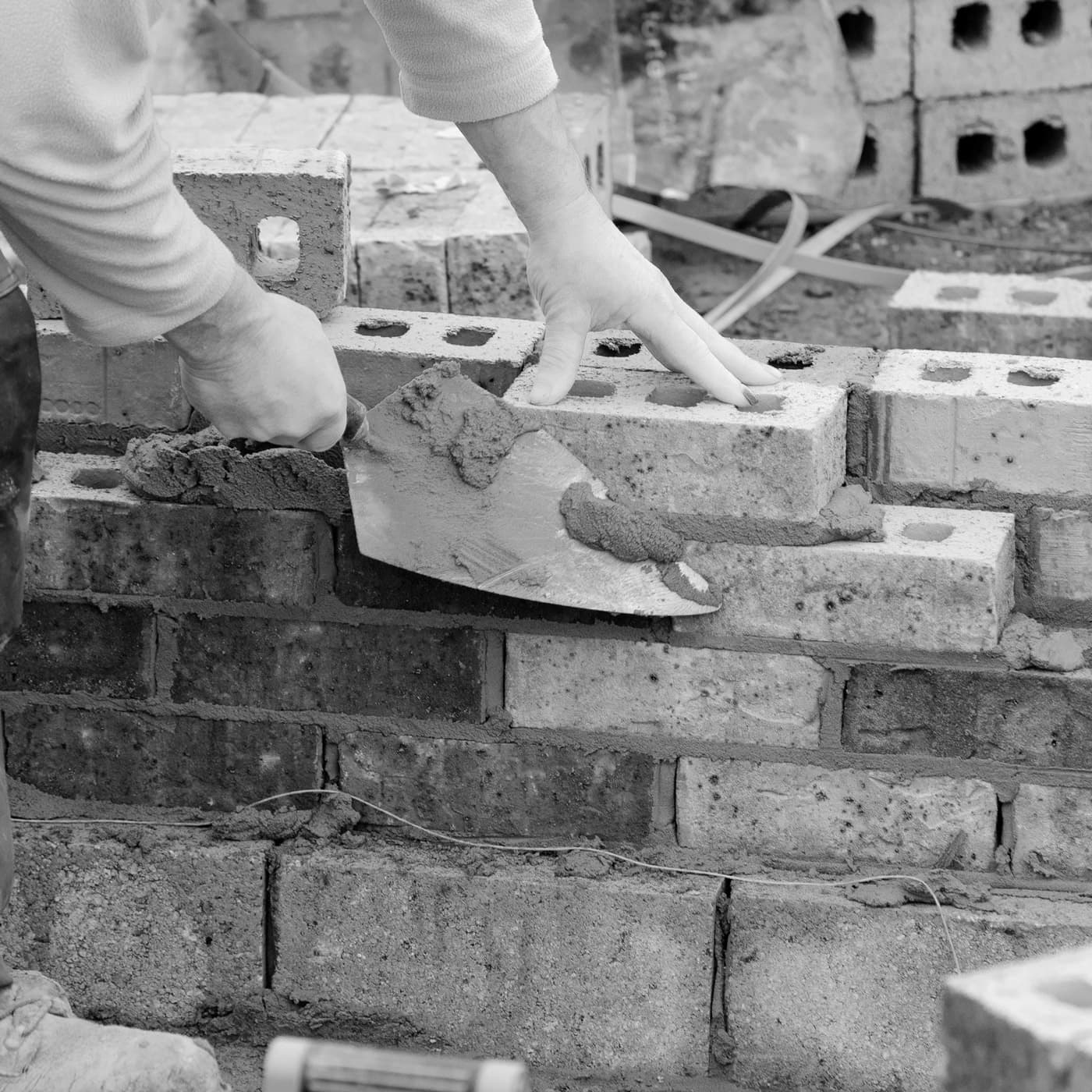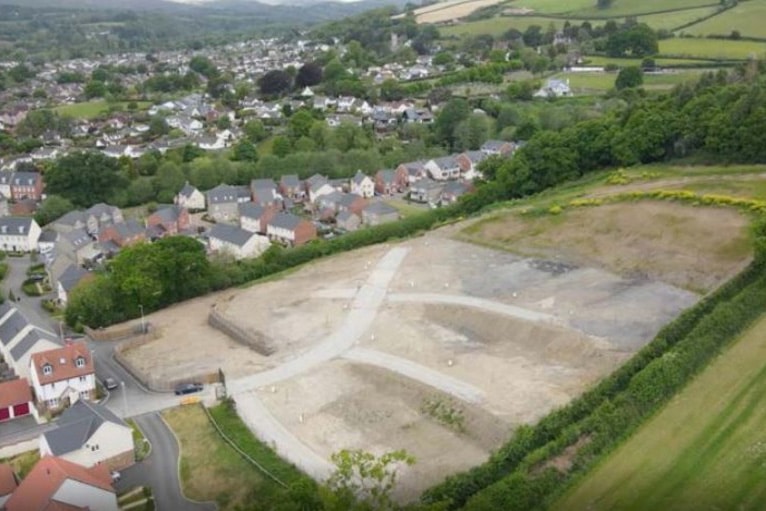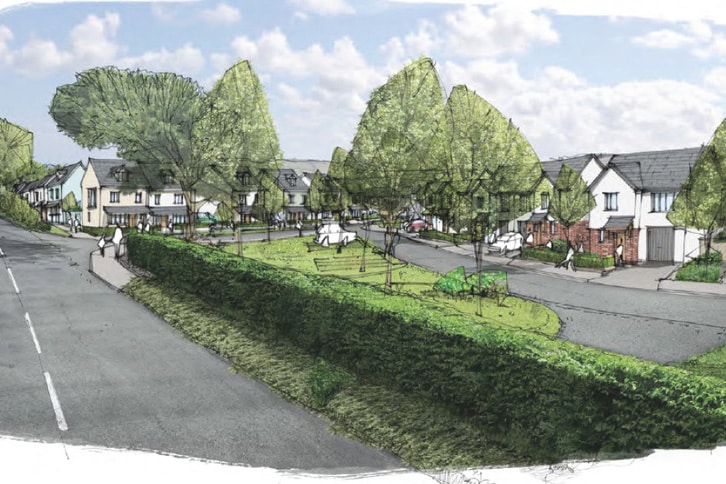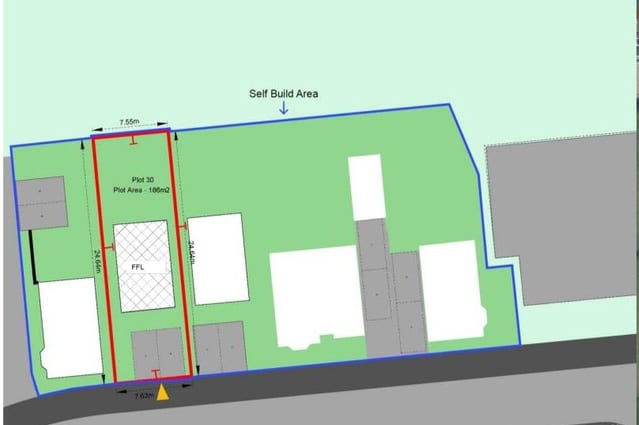YOUR GUIDE TO SELF-BUILD
Do you dream of building your own home?
You’re not alone – more than one in three of us share this aspiration.2 The attraction of building your own home is obvious: the opportunity to design a custom home that suits your lifestyle, potentially residing in a larger house or a more desirable location than you could otherwise afford. Yet, turning this dream into reality often remains elusive. Financial constraints and the availability of land are common hurdles, and the prospect of managing a complex project can be intimidating. Concerns about the budget overruns and extended periods in temporary accommodation add to the apprehension. But it doesn’t have to be this way. Today, there are numerous pathways to building your own home. Modern construction methods can significantly cut down build times, and custom-build options offer comprehensive support from developers throughout the process.
This guide is designed to help you embark on your self-build journey.
It is estimated that the self-build and custom housebuilding market in the UK delivers 7 to 10% of all new homes*.
*Cambridge Centre for Housing & Planning Research

DIFFERENCE BETWEEN SELF-BUILD AND CUSTOM-BUILD:
SELF Build Plots
Self-build plots are parcels of land designated for individuals who wish to manage their home’s design and construction personally. This approach offers the highest level of control, allowing homeowners to realise their vision exactly as they imagine.
Key Characteristics:
Full Control: Buyers have complete autonomy over the design, materials, and construction process.
Project Management: Owners can manage the project themselves or hire professionals, such as architects and builders to assist.
Personal Involvement: This option is ideal for those who want to be involved at every stage of their home’s creation, from the initial design to the final build.
Cost Management: This approach can be cost-effective, as buyers can directly manage budgets and make decisions that align with their financial plans.
Custom Build
Custom-build plots offer a balance between buying a ready-made home and a fullself build. In this scenario, a developer prepares the plot and offers various options for customisation. Buyers work with the developer to select designs, finishes, and features, but the developer handles the construction.
Key Characteristics:
Developer Involvement: A developer or builder prepares the plot and handles the construction process, offering a range of customisable options.
Customisation Options: Buyers can choose from pre-approved designs and customise elements such as layouts, finishes and fixtures.
Streamlined Process: The developer manages planning permissions, building regulations, and construction, reducing the administrative burden on the buyer.
Predictable Time line: Custom-build homes typically have a more predictable build time line than self-build projects.
Choosing between Self-Build and Custom-Build:
Self-build: is perfect for those who desire complete control over the design and construction of their home and are prepared to invest significant time and effort in managing the project. This route is ideal for those with a clear vision and the skills to oversee a complex construction process.
Custom-build: Opt for custom-build if you prefer a balance of customisation and convenience. This approach suits buyers who want to personalise their home but prefer a more managed and streamlined process with professional support from a developer.
Available Self Build Sites
Bradley Bends,
Bovey Tracey
A prime self-build opportunity situated in an elevated position on the edge of Dartmoor National Park.
Price from: £180,000
Teignbrook,
Teignmouth
An opportunity to purchase one of 13 fully serviced self-build plots in an elevated position in Teignmouth
Price from: £175,000
One in three of us dream about building our own homes*. Read this guide to see how you can turn your self-build dream into a reality.
*National Custom & Self Build Association
BUDGETING FOR YOUR SELF-BUILD HOME:
Whether you’re building your forever home or planning to move in a few years, one crucial question looms large for all self-builders: “What will my house be worth when it’s finished?”
While profit margins may be less crucial if you intend to stay long-term, they remain essential in shaping your budget. Therefore, the estimated market value of your completed home should be the cornerstone of your self-build budget calculation.
Calculate Your Self-build Budget:
Estimate The Completed Value
Research local building costs per square metre to understand your finished self-build value. As property professionals in our area, we project the end value of all self-build plots we introduce to the market – and we are happy to share this with you!
Deduct The Land Cost
Subtract the cost of the self-build plot (land) you are looking to purchase from the estimated value of your completed self-build home.
Plan A Contingency Budget
In today’s market with rising building material and labour costs, a larger contingency fund is wise for unexpected expenses.
Seek Expert Advice
The internet is great, but we would recommend relying on something other than online research. Consulting with experienced self-build specialists can help identify unforeseen costs before they arise.

FUNDING YOUR SELF-BUILD HOME:
Two common myths about self-build homes are that you need significant savings to finance the project and that you might have to sell your current home, endure the upheaval and expense of temporary accommodation, or even live in a caravan on-site. Fortunately, these myths are not necessarily true. There are now more options than ever to make self-building accessible, even for first-time buyers!
Ways you can fund your self-build project.
You might choose one option or a combination of several:
Personal Savings: Money in the bank!
Property Sale: Selling your existing home to release equity to fund your project.
Self-build mortgage: A self-build mortgage differs from a traditional mortgage in that it releases funds to you in stages throughout the construction of your home. While the specific stages can vary slightly between providers, they generally include:
- Land purchase
- Completion of the footings and foundations
- Walls built to eaves height
- Shell becomes ‘watertight’ – roof, ceiling, and walls are in place
- First fix
- Second fix
- Build complete
These staged payments help ensure your project gets funding at each critical construction phase.

WHAT INCENTIVES ARE THERE FOR SELF-BUILD HOMES?
Help to Build Loans:
According to the planning portal, self-build homes account for approximately 7-10% of new houses in England, equating to around 12,000 homes annually. Recognising the growth potential for self-building, the UK government is actively promoting self-build projects through various funded loan schemes across the country (excluding Northern Ireland for now).
Help to Build Scheme:
This programme provides equity loans to cover the combined cost of purchasing land and constructing your custom or self-build home. With a minimum deposit of 5% and a self-build mortgage registered with the scheme, you’ll only pay interest during construction. Additionally, you benefit from a five-year interest-free period on the loan after completion, making repayment more manageable.
RECLAIMING VAT ON YOUR SELF-BUILD HOME:
In addition to financial support from loan schemes, you can reclaim the VAT on most materials and fittings for your self-build home, resulting in significant savings. Typically, your main contractor will account for this and exclude VAT for aspects of the build that qualify for zero-rate VAT. However, VAT may still apply to certain services, such as landscaping and professional fees. If you hire subcontractors who have included VAT in their charges, or if you are unsure about what qualifies for zero-rate VAT, it is essential to learn more about reclaiming your VAT. Remember, you have a three-month window to apply for your VAT refund, so timely action is crucial.
FINDING THE PERFECT PLOT FOR YOUR SELF-BUILD HOME.
With your budget in place for your dream self-build home, the next step is to find the perfect plot of land. But where should you start, and where are the pros and cons of different types of plots? Our Land and New Homes specialists are here to assist you in finding the ideal plot for your self-build project. We collaborate with various landowners and developers who offer self-build and custom-build plots throughout the South West. If you are searching for the perfect plot, contact our team today:






